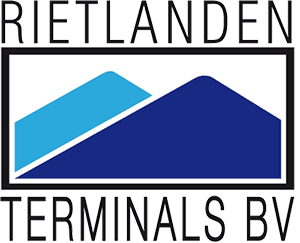
Reporting tool and ship planning at Amsterdam port
Rietlanden Terminals BV. has a rich history in the port of Amsterdam and has become a major player in the transhipment of coal. This international organisation offers its customers a total package in the distribution, handling and storage of dry bulk and is also a link to global market development and distribution within the energy market.
Centralised reporting system
Development of a customised reporting tool to replace manual Excel reports.
User-friendly digital platform
Design of an intuitive web-based system for easy access to and sharing of information.
Adaptive operational tools
Development of real-time tracking and scheduling solutions for more efficient terminal operations.
Optimisation of ship planning
Implementation of advanced planning algorithms to improve efficiency in ports and ship turnaround times.
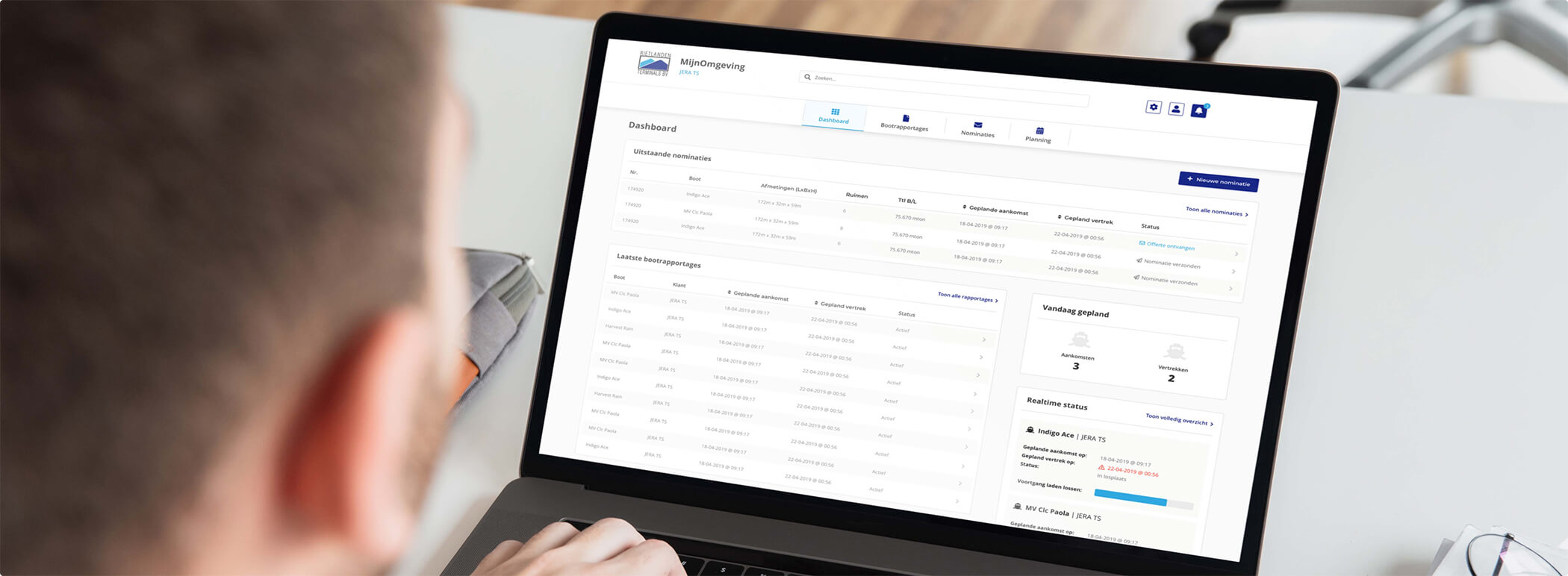
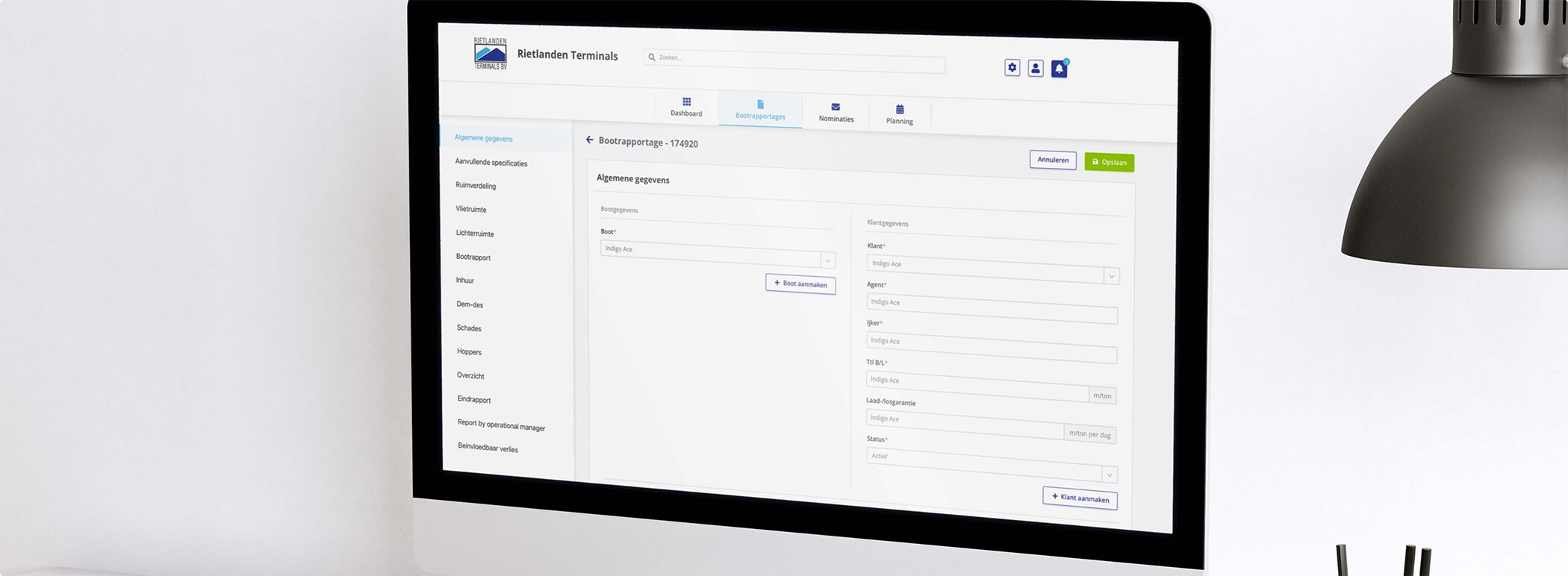
The company relied on error-prone Excel files for reporting.
Tools were too slow to adapt to operational needs.
The system was not accessible enough
to share
information efficiently.
to share
information efficiently.
The system was not accessible enough to share information efficiently.
Ship scheduling was inefficient and caused delays.
Problem statement
Managing and coordinating distribution, handling and storage in the Amsterdam ports was previously done by Rietlanden in the programme Excel. This Excel file, consisting of a range of complex calculations, had many limitations. Besides the static nature of the Excel sheets, Rietlanden lacked the ability to link systems and assign users (roles), among other things.
Business case
Rietlanden Terminals BV. was therefore looking for a malleable software-based solution, in which all the calculations and tabs included in Excel were worked out into an accessible and responsive application.
- More control and insight into purchasing and inventory
- Automation and visualisation of complex calculations
- Structured workflow
- Generation of (boat) reports
- Planning insight and management
- Implementation of various links
- Adding roles and rights (multi-user)
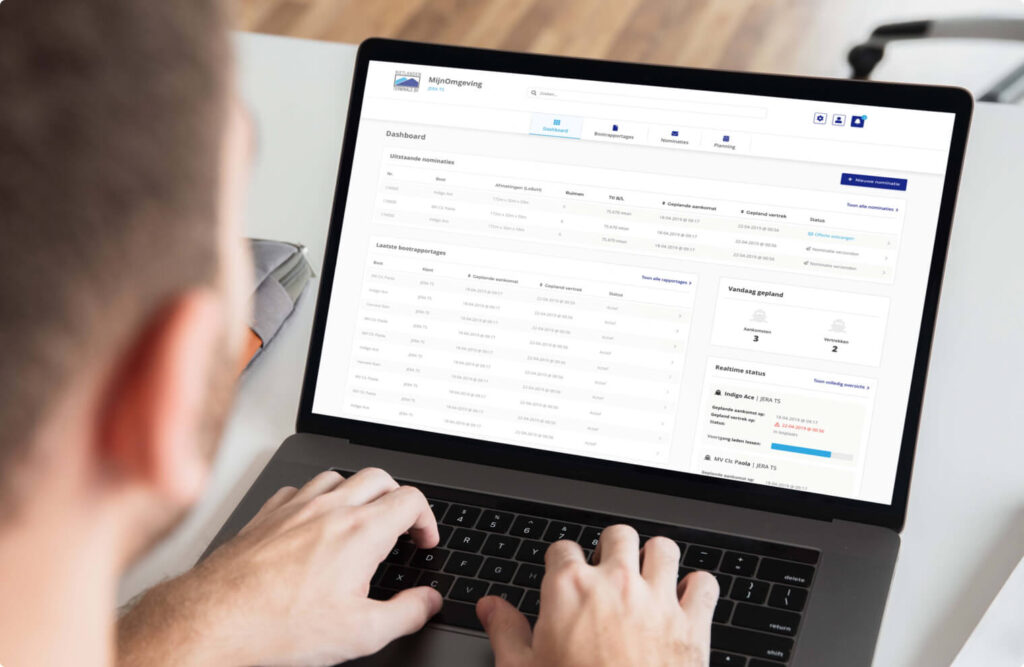
Automated workflows reduce processing times.
Centralised data improves real-time insights.
Automated matching ensured accuracy and compliance.
A supplier portal improved communication and transparency.
Effective planning and reporting.
With the development of a reporting tool and ship scheduling, Excel files have given way to accessible and responsive software solutions. With the linking of these applications, not only is the entire workflow run structurally, complex calculations have been automated and made visually transparent, and the planning of machinery and materials can be easily managed.
Need a similar solution?
Let’s talk!
Functionalities
Generating boat reports
Generating boat reports provides a complete overview of all boat data and specifications. Not only does this facilitate cargo processing, this functionality also creates an overview of the progression within ports. With an implemented export functionality, processes can be managed and stored in the administration.
Tighter planning of boats and cranes
With the help of vessel scheduling, capacity planning of both cranes and boats is managed more tightly. The link between vessel planning and boat reports makes scheduling boats based on available data quick and easy.
Automatising and visualising complex calculations
Calculations previously recorded in Excel are now seamlessly recognised and executed by the software. Among other things, these automatic calculations are used to determine the running time of cranes and boats and to generate (boat) reports. The addition of various graphs makes data visually clear and comprehensible.
Generating boat reports
Generating boat reports provides a complete overview of all boat data and specifications. Not only does this facilitate cargo processing, this functionality also creates an overview of the progression within ports. With an implemented export functionality, processes can be managed and stored in the administration.
Tighter planning of boats and cranes
With the help of vessel scheduling, capacity planning of both cranes and boats is managed more tightly. The link between vessel planning and boat reports makes scheduling boats based on available data quick and easy.
Automatising and visualising complex calculations
Calculations previously recorded in Excel are now seamlessly recognised and executed by the software. Among other things, these automatic calculations are used to determine the running time of cranes and boats and to generate (boat) reports. The addition of various graphs makes data visually clear and comprehensible.
Proud partners of Emendis:










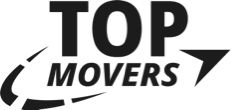





Emendis works for, among others





























